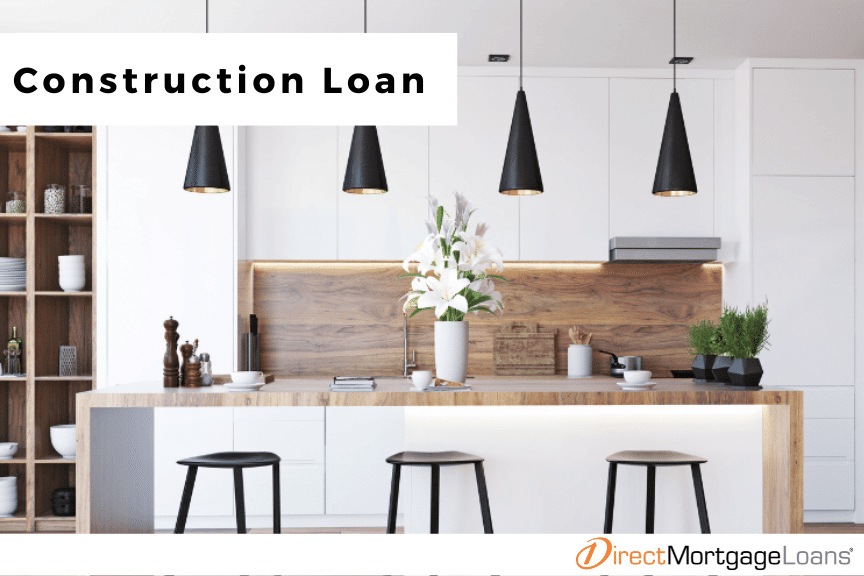Construction Loan
Haven’t found your dream home? Build one with a Direct Mortgage Loans’ Construction Loan. We offer a variety of Construction Loans with flexibility in qualifying credit and down payment minimums.
What is a New Construction Loan?
New construction loans are designed to help borrowers finance the construction of a new home. Here are some situations when you might consider getting a new construction loan:
- You’re building a custom home: If you’re building a custom home, a new construction loan can provide the financing you need to pay for construction costs.
- You’re building a spec home: If you’re a developer or builder and you’re building a spec home (a home that is built before it is sold), a new construction loan can provide the financing you need to pay for construction costs.
- You want to lock in your interest rate: With a new construction loan, you can typically lock in your interest rate before construction begins. This can provide you with some certainty about your future mortgage payments.
- You want to control the construction process: With a new construction loan, you have more control over the construction process. You can work with the builder to ensure that the home is built to your specifications and standards.
- You have a large down payment: New construction loans typically require a larger down payment than traditional mortgages. If you have a large down payment saved up, a new construction loan may be a good option.
It’s important to note that new construction loans come with some risks, such as the risk that construction costs will exceed the loan amount or that the home will not be completed on time. Be sure to weigh the pros and cons carefully and consult with a mortgage professional to determine whether a new construction loan is right for you.



